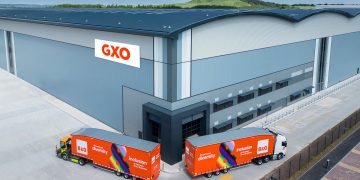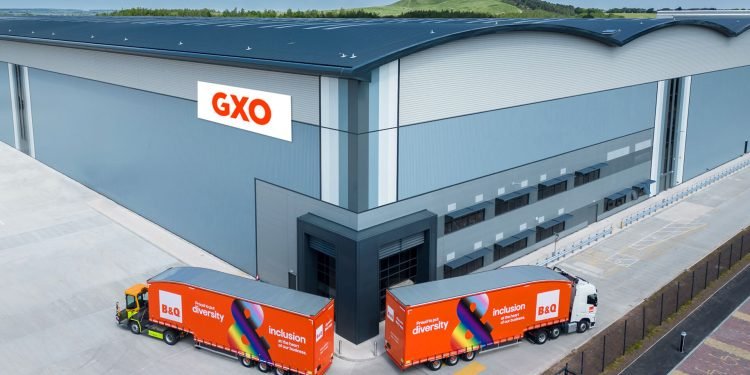By Maria Kalamatas — August 27, 2025
LONDON — August 27, 2025. In the yard of a distribution hub outside Birmingham, a line of gleaming trucks stood ready. Most ran on liquefied natural gas, a few on electric batteries — and together, they form what is now the UK’s second-largest low-emission fleet. Behind the shift are GXO Logistics and home improvement retailer B&Q, companies that have tied their long-term growth to a very public commitment: reaching net-zero logistics by 2040.
“Customers care about where their products come from, but increasingly they care how they arrive,” said Steve Hicks, GXO’s UK operations director. “Cleaner fleets and greener warehouses aren’t optional anymore. They’re the price of staying in the market.”
A concrete path, not just a pledge
Unlike many corporate promises, GXO and B&Q have detailed steps. In the past two years, they have rolled out solar-powered distribution centers, electrified last-mile delivery vans, and cut warehouse energy use with smart automation. The LNG fleet is the latest milestone, reducing emissions by around 20% per vehicle compared to diesel.
Why this matters now
The UK government has pressed logistics operators to accelerate decarbonisation, while consumers and investors are asking tougher questions about ESG compliance. For B&Q, which operates nearly 300 stores nationwide, supply chain emissions make up the largest part of its carbon footprint.
“Retailers can’t just greenwash anymore,” explained Rachel Foster, an independent ESG analyst in London. “They have to show results in logistics — that’s where the bulk of emissions sit.”
Challenges ahead
Switching to green transport isn’t simple. Charging infrastructure for electric trucks remains patchy, and LNG supply chains face their own volatility. GXO executives admit the road won’t be smooth, but insist early investment is cheaper than being left behind in 10 years.
Outlook
If the partnership meets its 2040 target, it will set a benchmark not just for the UK but for global retailers and 3PL providers. For now, the sight of LNG and electric vehicles lining up in Birmingham is a reminder that the transition to cleaner logistics is no longer theoretical — it’s happening on the ground.























